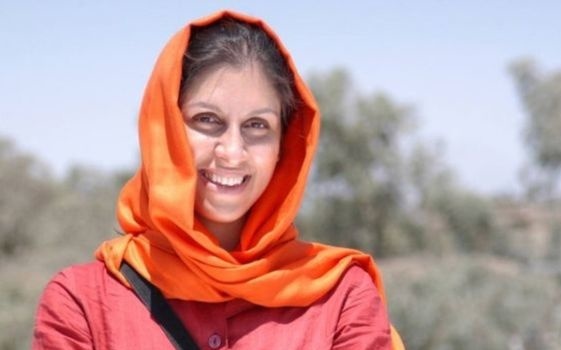The UK Foreign Office says it does not have to assist Anglo-Iranian political prisoner Nazanin Zaghari-Ratcliffe (pictured), detained since April 2016 in Iran.
In a letter delivered to Zaghari-Ratcliffe’s lawyers, the Foreign Office said British citizens arrested overseas have no right to help or protection, even if they are tortured or held as diplomatic leverage.
The lawyers had asked the Foreign Office to set out the Government’s view of its obligations.
Sarah Broughton, head of consular affairs, responded, “British citizens falsely accused overseas have no legal right to consular assistance.”
She added that, despite a UN finding that Zaghari-Ratcliffe’s treatment in prison amounts torture, the UK Government “cannot investigate torture or mistreatment allegations”.
In January 2019, Zaghari-Ratcliffe and Iranian human rights activist Narges Mohammadi went on hunger strike over conditions.
The strike was ended after the two women were granted access to essential medical care. But in July 2019, Zaghari-Ratcliffe was isolated in a mental health ward in Tehran.
Her lawyers said of the Foreign Office letter, “If it is really the government’s position that it has no obligations even in the extreme and unique circumstances of Nazanin’s case, then that sends an extremely alarming message to the rest of the British public.”
“This is Beginning to Make Us Look Weak”
The letter effectively withdraws Zaghari-Ratcliffe’s status of formal diplomatic protection, issued by then-Foreign Secretary Jeremy Hunt in March 2019.
Hunt wrote on Monday, “For diplomatic protection to mean something, there have to be consequences for a state that continues to imprison an innocent citizen. It is not clear to me that there have been any; something that is beginning to make us look weak.”
Despite the granting of diplomatic protection, no British official has visited charity worker Zaghari-Ratcliffe during her time in prison or at her mother’s Tehran home, where she has been on furlough since March. The Foreign Office line is that Iranian officials have not granted its request for consular access.
Zaghari-Ratcliffe, then working for the Thomson Reuters Foundation, was seized in April 2016 at a Tehran airport as she and her infant daughter Gabriella were leaving Iran after a visit to family.
She was sentenced to five years on espionage charges. No evidence was publicly presented at the time.
Later, in State TV documentaries, payslips and e-mails were displayed to “prove” Zaghari-Ratcliffe sought the overthrow of the Islamic Republic. The documents were from her work for BBC Media Action, which trains journalists overseas, after the mass protests against the 2009 disputed Presidential election.
The “evidence” showed no more than that Zaghari-Ratcliffe was an administrator for the program.
In September, Iranian officials threatened new charges, but a court hearing was called off at the last minute.
See also UPDATED: Iran Authorities Threaten New Charge v. Political Prisoner Zaghari-Ratcliffe


1. Nazanin Zaghari is an Iranian citizen.
2. She was prosecuted and convicted according to Iranian law.
She worked on a clandestine training program for journalists in Iran.
No, Nazanin Zaghari-Ratcliffe did not work on a “clandestine training program for journalists” in Iran or any other location. BBC Media Action is a very open program.
BBC Media Action (WorldService) is not a clandestine organisation, but the particular training program she was involved in was not publicised. It was set up so that “journalists” in Iran would be “trained” without the knowledge of the government.
Again, not true. BBC Media Action was open about where it carried out training, including the programs in the region.